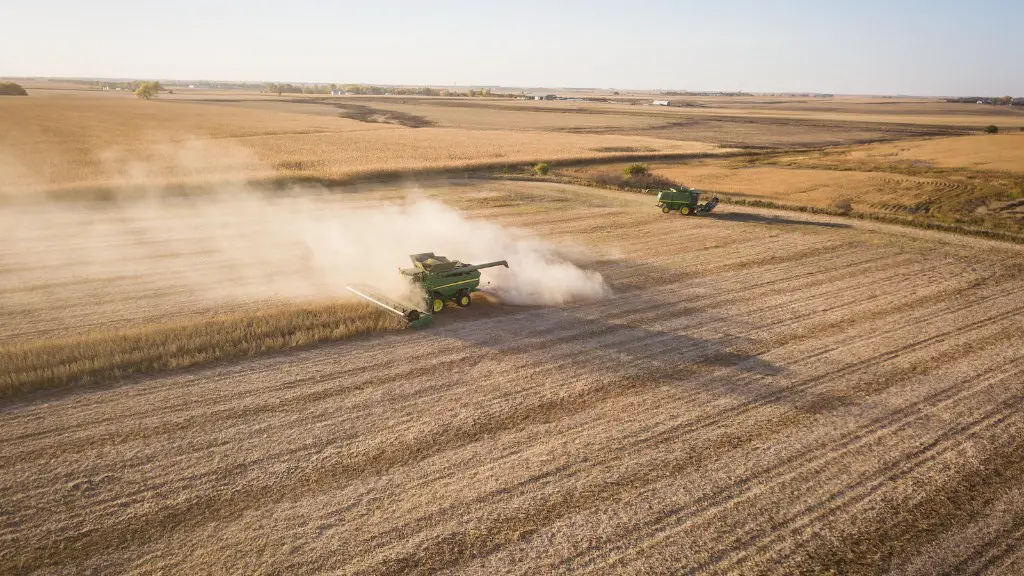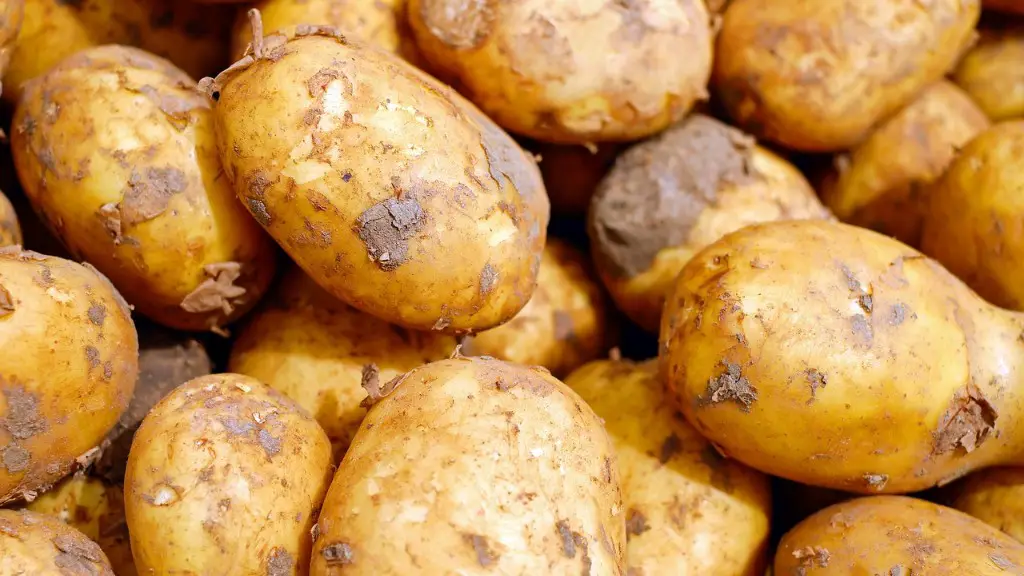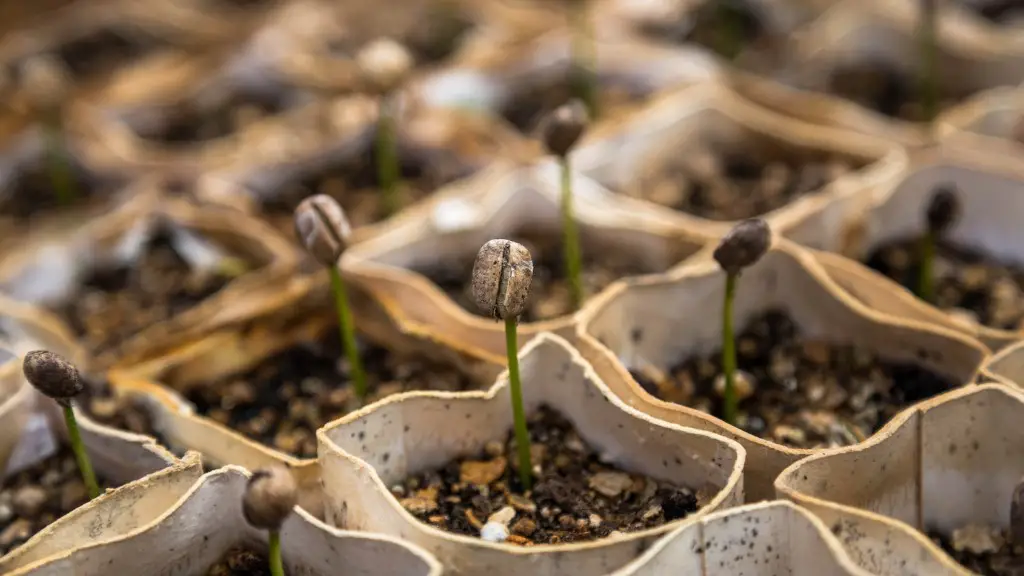Aside from tobacco, North Carolina agriculture is largely dominated by poultry and livestock. The state is a leading producer of hogs, chickens, and turkeys. North Carolina’s farmers utilize biotechnology to improve animal health and resistance to diseases. The use of biotechnology also helps to increase the efficiency of North Carolina’s animal agriculture operations.
The use of biotechnology that most benefits North Carolina agriculture is the use of genetically modified crops. These crops have been modified to be resistant to herbicides and pests, which means that they can be grown with fewer inputs and thus are more profitable for farmers.
Which is an agricultural benefit of biotechnology in North Carolina?
Biotechnology can help farmers develop disease-resistant crops, which can make insect control and weed management safer while protecting crops against disease. This can be a potential economic benefit to the rural areas of North Carolina.
The popularity of North Carolina as a biotech destination has resulted in the creation of more than 12,000 jobs in the state. The three main subsectors of the biotech industry that have shown robust growth are drugs and pharmaceuticals, research and testing, and medical labs. Agricultural feedstock and chemicals are also important parts of the biotech industry in North Carolina.
Which biotechnology can benefit agriculture
DNA technology has had a profound impact on agriculture. By improving yields and reducing vulnerability to environmental stresses, it has helped to increase the production of food crops. In addition, by improving the nutritional quality of food crops, it has helped to improve the taste, texture and appearance of food. Finally, by reducing the dependence on fertilizers, pesticides and other agrochemicals, it has helped to reduce the cost of food production.
Biotech crops can make farming more profitable in a number of ways. They can increase crop quality, in some cases increase yields, simplify work, and improve safety for farmers. This allows farmers to spend less time managing their crops and more time on other profitable activities.
How is biotechnology used in North Carolina?
The biotechnology industry in North Carolina is booming, with companies specializing in everything from pharmaceutical manufacturing to health informatics to crop genetic engineering. This thriving sector is a major driver of the state’s economy, and it shows no signs of slowing down. With so many different specialties, there’s something for everyone in the biotechnology industry in North Carolina. Whether you’re looking for a cutting-edge career or a place to invest your money, this is the place to be.
North Carolina is a leading peanut and sweet potato production state. Apples are the biggest fruit crop but blueberries, peaches and strawberries are also important. North Carolina also produces hay and wheat.
Which describes a beneficial relationship between biotechnology and North Carolina?
The improvement of biotechnology helps farmers in North Carolina become more disease and insect resistant, which in turn increases their profits. This is a beneficial relationship between biotechnology and North Carolina farmers.
Biotechnology is a field of science that encompasses many different disciplines, including biology, chemistry, engineering, and computer science. It has been used for centuries to produce products such as cheese and wine. In recent years, biotechnology has been used to develop new drugs and treatments for diseases.
There are many potential benefits of biotechnology, including environmental protection, higher yields, and improved human health.
Environmental protection: Biotechnology can be used to develop environmentally friendly products and processes. For example, biotechnology can be used to develop environmentally friendly pesticides and fertilizers.
Higher yields: Biotechnology can be used to increase crop yields. For example, biotechnology can be used to develop crops that are resistant to pests and diseases.
Improved human health: Biotechnology can be used to develop new drugs and treatments for diseases. For example, biotechnology is being used to develop a vaccine for HIV/AIDS.
What are the top 3 industries in North Carolina
The state of North Carolina is home to a robust agriculture industry, as well as a thriving food processing and manufacturing sector. Companies such as Tyson, Campbell’s, and Smithfield have made their mark in the food industry, and North Carolina is also a leading producer of furniture, textiles, plastics, and chemicals. Tourism is also a major contributor to the state’s economy, and North Carolina is a popular destination for both domestic and international travelers.
This is a controversial topic with many people expressing concerns about the safety of these genetically modified plants. However, there is scientific evidence that suggests these plants are no more risky than plants produced through traditional breeding methods.
Which type of biotechnology is applied to agriculture?
Agricultural biotechnology is the application of biotechnology to the field of agriculture. It encompasses a wide range of techniques, including the use of genetic engineering to modify the genes of plants and animals to produce desired traits, the use of tissue culture to produce genetically identical plants, and the use of microorganisms to control pests and improve crop yields.
Green biotechnology has the potential to address a number of challenges facing the agriculture sector, including the need to increase food production to meet the needs of a growing population, the need to reduce the use of harmful pesticides and chemicals, and the need to develop more resilient crops that can withstand the effects of climate change.
There are a number of concerns about green biotechnology, including the potential for genetically modified organisms (GMOs) to spread through the environment and contaminate non-GM crops, the potential for unforeseen health effects of GM crops, and the possible negative impacts of GM crops on biodiversity. However, if properly regulated, green biotechnology has the potential to bring about positive change in the agriculture sector.
Biotechnology can help improve crop yields and resistance to pests and diseases, providing benefits for farmers and consumers alike. Genetically modified crops can produce higher yields, for example, and require less use of pesticides and other chemicals. They can also be designed to resist specific pests or diseases, meaning that farmers can grow crops with less fear of crop loss. Ultimately, this can lead to lower food prices for consumers.
What are the uses of biotechnology in agriculture field
Agricultural biotechnology has been used to improve the nutritional content of a variety of crops in an effort to meet the needs of an increasing population. Genetic engineering can produce crops with a higher concentration of vitamins and minerals, as well as improve the taste and texture of food.
The field of biotechnology is growing rapidly and offers a number of exciting possibilities for sustainable production of chemicals, energy, and other materials. Genetically modified crops have the potential to greatly increase food production, and seawater bioprocesses offer a way to produce fuel and chemicals with little or no waste. Carbon dioxide can be used as a raw material in some bioprocesses, and regenerative medicine offers the possibility of creating new organs from scratch. These and other advances in biotechnology hold great promise for a more sustainable future.
What are 5 biotechnology examples?
Biotechnology is a field of science that applies living organisms and tools to create or modify products for specific use. Biotechnology has a wide range of applications in various fields such as medicine, agriculture, and industry.
Some of the key applications of biotechnology include DNA profiling, DNA cloning, transgenesis, genome analysis, stem cells and tissue engineering. DNA profiling is a technique used to identify individuals by their unique DNA signature. DNA cloning is a process used to create copies of DNA molecules for use in research or therapy. Transgenesis is the process of introducing genetic material from one organism into another to create a transgenic organism. Genome analysis is the study of an organism’s complete set of DNA. Stem cells are cells with the ability to renew themselves and differentiate into various specialized cell types. Tissue engineering is the regeneration or replacement of damaged tissue using cells, biomaterials, and supportive scaffolds.
The North Carolina life sciences sector is thriving, with 810 companies employing 75,000 people directly. These companies are supported by 2,500 additional North Carolina companies that provide services or products related to the life sciences. This directory includes all of these companies, providing a comprehensive resource for anyone interested in the sector.
What is most used in biotechnology
Genetic engineering is the process of manipulating genes in a living organism to change its characteristics. This can be done by introducing new genes from another organism, or by directly altering the genes themselves.
Genetic engineering has a wide range of applications, including making crops more resistant to pests and diseases, producing more nutritious food, and developing new medicines. Its potential uses are almost limitless, and it is one of the most controversial topics in science and ethics.
Recombinant DNA technology, also known as genetic engineering, is the process of manipulating and combining DNA from different sources to create a new organism. This can be done by introducing new DNA into an existing organism, or by simply combining DNA from different organisms to create a new one.
Plant tissue culture is a method of growing plants in sterile, controlled environment. This is done by taking a small piece of plant tissue (such as a leaf or stem) and growing it in a nutrient-rich solution.
Transgenic organisms are those that have been created by introducing new DNA into their cells. This DNA may come from another individual of the same species, or from a completely different species. Transgenic organisms are sometimes also referred to as GMOs (genetically modified organisms).
Conclusion
Biotechnology can help farmers to produce crops that are more resistant to pests and diseases. This can lead to increased yields and improved quality of crops. Additionally, biotechnology can help to improve the efficiency of agricultural production, making it more environmentally sustainable.
The use of biotechnology that most benefits North Carolina agriculture is the use of water-efficient crops. These crops can help reduce the amount of water needed for irrigation, which can save farmers money and help protect the state’s water resources.





